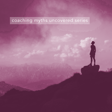
The Overlooked Competency
Behind every powerful coaching question lies something quieter—but far more essential: trust.
In this episode of PRIME SPACE, Elias Scultori, MCC, shines a light on an often underestimated ICF Core Competencies: Cultivating Trust and Safety. While many coaches focus on powerful questions, agreements, and action planning, the foundation of effective coaching rests on something more fundamental—trust.
Elias explores how trust shows up in everyday life, why it is indispensable in coaching, and how coaches can intentionally nurture it from the very first impression they make. He also introduces the powerful distinction between safe space and brave space, inviting coaches to reimagine trust-building as a shared responsibility between coach and client.
If you’ve ever wondered how to deepen your coaching relationships, this episode will remind you why trust isn’t just another competency—it’s the very ground on which coaching stands.



















